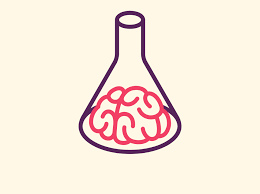
Breaking News
 The Federal Reserve is planned to inject $16 billion into the economy this week...
The Federal Reserve is planned to inject $16 billion into the economy this week...
 Dr. Rhonda Patrick: Fasting, Creatine, Brain Performance & Longevity Breakthroughs | PBD #740
Dr. Rhonda Patrick: Fasting, Creatine, Brain Performance & Longevity Breakthroughs | PBD #740
 HIGH ALERT! Americans Will Die for Israel's Evil War with Iran | Redacted w Clayton Morris
HIGH ALERT! Americans Will Die for Israel's Evil War with Iran | Redacted w Clayton Morris
 The BEST Natural Dewormer for Sheep & Goats (That Actually Works)
The BEST Natural Dewormer for Sheep & Goats (That Actually Works)
Top Tech News
 US particle accelerators turn nuclear waste into electricity, cut radioactive life by 99.7%
US particle accelerators turn nuclear waste into electricity, cut radioactive life by 99.7%
 Blast Them: A Rutgers Scientist Uses Lasers to Kill Weeds
Blast Them: A Rutgers Scientist Uses Lasers to Kill Weeds
 H100 GPUs that cost $40,000 new are now selling for around $6,000 on eBay, an 85% drop.
H100 GPUs that cost $40,000 new are now selling for around $6,000 on eBay, an 85% drop.
 We finally know exactly why spider silk is stronger than steel.
We finally know exactly why spider silk is stronger than steel.
 She ran out of options at 12. Then her own cells came back to save her.
She ran out of options at 12. Then her own cells came back to save her.
 A cardiovascular revolution is silently unfolding in cardiac intervention labs.
A cardiovascular revolution is silently unfolding in cardiac intervention labs.
 DARPA chooses two to develop insect-size robots for complex jobs like disaster relief...
DARPA chooses two to develop insect-size robots for complex jobs like disaster relief...
 Multimaterial 3D printer builds fully functional electric motor from scratch in hours
Multimaterial 3D printer builds fully functional electric motor from scratch in hours
 WindRunner: The largest cargo aircraft ever to be built, capable of carrying six Chinooks
WindRunner: The largest cargo aircraft ever to be built, capable of carrying six Chinooks
Brain Waves Have Been Detected Coming From 'Mini Brains' Grown in The Lab

This is a huge discovery that brings on possibilities for studying the early development of brain disorders.
It also has left some scientists feeling hesitant.
These lab-grown brains are known as organoids - three-dimensional, miniature, simplified versions of organs grown in a lab for research purposes, such as testing drug responses, or cell development under certain adverse conditions.
The research was first presented at a conference back in November 2018, and has now been peer-reviewed and published in Cell Stem Cell.
"The level of neural activity we are seeing is unprecedented in vitro," says neuroscientist Alysson Muotri from the University of California, San Diego.
"We are one step closer to have a model that can actually generate these early stages of a sophisticated neural network."

 RNA Crop Spray: Should We Be Worried?
RNA Crop Spray: Should We Be Worried?

